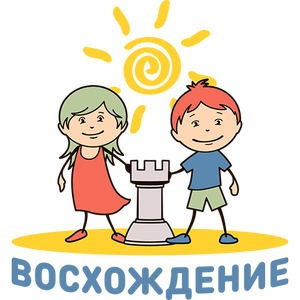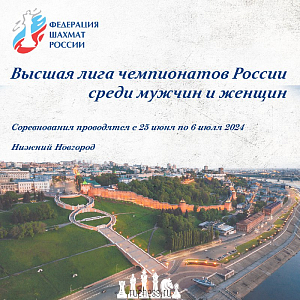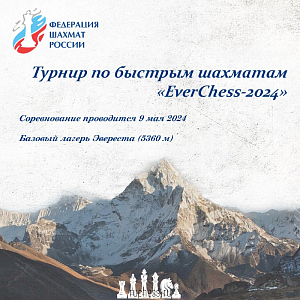22 December 2015
Ivan Bukavshin: I Am for Classical Time Control
The winner of the Cup of Russia answers Dmitry Kryakvin’s questions.
– Ivan, congratulations on the victory! How did you get to win the first prize?
– Thank you for the congratulations. The tournament started for me as early as three weeks ago with the Cup of the Governor of Yugra. It was very hard to get started, the competition was very tough, and I struggled to score wins. All the games were important, but the key encounter was in the last round with Aleksey Goganov. As for knockout tournaments, I never passed the first round before, and now I got as far as the final round at once!
It was difficult in the 1/8 final match against Yury Eliseev: I had to defend all the time. The rapid games went more or less fine, however. It’s hard to win without playing a single good game, so I had to pull myself together before the Armageddon to show something nice. It was the second time in my life that I played “the death game”, before that I had this experience against Anton Korobov at an Aeroflot pilot rapid tournament a few years ago.

– What tips can you give to a player before an Armageddon?
– I didn’t have any particular plans, but in my game versus Eliseev I wanted to make Black think hard. It’s clear that had I continued to play d4, Nf3, e3, as in a classical game, I wouldn’t have posed any particular problems. The result was a pattern where one couldn’t calculate the lines to the end, but I attacked and held the initiative.
Against both Yury and Ildar, I had an extra minute at some point, even though I played Black versus Khairullin. It’s difficult to say whether it was Ildar’s mistake, he had an edge objectively, but on the other hand he allowed me to make simple moves quickly. And I didn’t feel that my position was worse mathematically because I was putting my opponent into time trouble. There is probably no universal recipe for playing an Armageddon, but I think you need to play your own game as Black and try to exert pressure as White!
– So you made it to the semifinal…
– My next opponent was Denis Khismatullin. Denis had been playing at finals of the Cup of Russia even when I only read about them in the media. I manage to save the first game with Black: I had the impression that I had studied that opening, but in fact I didn’t know it. I got off the hook, even though Khismatullin missed a decisive blow in time trouble. In the second game, we both saw quite similar lines, but I took advantage of this being the final time control and my opponent having little time, and after calculating two moves ahead I suddenly won.
– Did you expect to face Kokarev in the final?
– Before the tournament started, probably not: Dmitry said that we both weren’t very good match fighters and that he had lost in the first round many times. But Kokarev is a very strong grandmaster, there is nothing surprising about his success. And Vladimir Fedoseev failed to come back at the tiebreak against him.
That I didn’t go into the main line of the King’s Indian with White was caused by something between drowsiness and laziness. I think that if I hadn’t played thirty games over three weeks before that, I would have acted more aggressively. And as it were, I had to afford a small opening weakness, even if it was probably wrong as a concept. I thought that it would be more practical than going all out with the hope of seeing some vague, dim light in the end of the tunnel.
– How does one feel after playing so many games in a row?
– Relieved! I will have an entire week of rest before the Nutcracker tournament. It was harder at the start of the marathon. A six week break in playing is an eternity for me. At first I had a great appetite for playing, but then an endless series of draws started… This was very frustrating. I got hotter again closer to the finish and, most importantly, my appetite for playing was back!
– How do you find playing the morning rounds of the reciprocal games? Are you a night person or a morning person?
– I tried to prepare for the games in the evening, closer to the night. Morning rounds are difficult for most players, but it turned out that in the semifinal and the final they were lucky for me. I managed to win two important games. When we played rapid chess at the Governor’s Cup tournament, it went well there too.
– If we digress a bit and remember the last Superfinal, what are your impressions from playing at the top level?
– After Chita I realized with great pleasure that I am still a weak player and I still have things to learn. It was indeed a strong impression. It’s not every day that I play against Peter Svidler! This both gives you experience and improves your chess mindset as a whole. Everyone has about the same level in the opening now, I think, except for those who have teams of analysts. The great players excel the others on the whole, a little bit everywhere. When you play, you understand it and you feel it, although this feeling is difficult to put into words.
– So your next tournament is the Nutcracker? Will you meet legends at the board there too?
– It's a very interesting tournament organized by Oleg Skvortsov jointly with the Russian Chess Federation and the Chess Support Foundation. The Kings will be playing against the Princes: it's Leko, Gelfand, Morozevich and Najer versus young players. Except for Evgeniy Najer, with whom I once played a blitz game, all the other opponents are people from pictures and magazine covers for me. It will be very interesting to play classical and rapid games with each of those great people. I won't have the time to prepare, so I'll take a rest, recharge my batteries, and enter the fray once again!
The Princes team will include Artemiev, Oparin and Antipov along with myself. There will certainly be a fight, even though we would have had more chances for success with Dubov and Fedoseev. (The Nutcracker coincided with a major competition in Qatar – editor's note.)
– Whom of the giants have you already met at the board, if we don't take the Superfinal into account?
– Grischuk, Eljanov – to be honest, I might forget someone, I don't want to offend those strong opponents I had.
– By the way, we have mentioned Vladislav Artemiev who is missing important events on the calendar because of his studies. How are you dealing with this?
– I am studying at the Urals State Mining University. I have a special curriculum there, I take credits and exams after I return from tournaments. The university respects sports, a lot of outstanding Olympians are studying there, including the famous swimmer Lobintsev. There is a strong chess team there: Igor Lysyj, Pavel Ponkratov, Sanan Sjugirov.
Sanan and I recently went to the European Universities Chess Championship: Sjugirov took the first place and I didn't spoil everything, so our university also won in the team event. I also played at the Universiade and the Students' Union Championship. Unfortunately, this year it coincided with the Russian U20 Championship.
– Who is the holder of the Cup of Russia working with now?
– Yuri Yakovich helped me at this tournament, I have been working with him for many years. I work a lot on my own, I participate in the studies of the RCF's Grandmaster Center. Our training sessions are collective work, and if it's something individual, I prefer studying it on my own.
– Do you feel the changes that are going on in chess under the onslaught of the ever stronger analytical engines?
– I didn't see the times when everything was analyzed manually, so I take computers, game databases and correspondence databases as granted. You can't escape from this. Of course, independent play may not even start in a game where everything has been prepared at home, but at some point the opponents start making decisions on their own anyway.
– Do you think that some players from the younger generation will soon be able to compete with Magnus Carlsen, who is not so young already?
– Of course, his play has recently been surprising, and there is no longer an abyss between him and the others. It's not for me to judge about this, but many young players are already able to compete with him. Vachier-Lagrave has become stronger, and Caruana and Giri, in my opinion, are not by much weaker, or not weaker at all, than the world champion. And in the candidates tournament I will be rooting for Peter Svidler. He is not a favorite, but he is one of the few chess titans who are still on the top.
– What do you think about the new trends and reformers' ideas to continue the popularization of rapid chess and Fischer Random Chess?
– I think that the people who play chess well in general will also dominate Fischer and rapid chess. Normally, the elite will be better off if classical chess remains there. If we switch to Fischer Random Chess, then years of work and heaps of analysis will go down the drain, you will have to win by sheer class. The absence of a strong opening will compensate for the difference in the level. As for rapid chess, I don't have a clear opinion about it. I prefer classical chess. I can't say that I am the most time-consuming player, but on the whole I am for classical time control, and I wouldn't hurry to bury it!
– This year you played brilliantly at Aeroflot Open, the U20 Russian Championship, the Higher League, and now you've won the final of the Cup of Russia. Why do you think this dashing leap from promising players to the very top happened?
– There were two more prominent tournaments where I could have proved my worth: the World Cup and the Superfinal. In the first tournament, I dropped out in the first round, in the second I scored -1, gaining only 2 rating points in total. Of course, there were competitions that I am pleased with, including the team championship of Russia, but I wouldn't overestimate my progress. There will be the Nutcracker tournament at the end of the year, which will be like either a big full stop or suspension points... But on the whole, I am pleased with this year!
– Did you perform under the banners of a club from your region in Sochi?
– I like playing for the Zhiguli team. I play at one of the top boards, that's very useful, you won't play against such opponents that I have on the second board at the usual stages of the Cup of Russia! Zhiguli is a good and nice team!
– Do you like playing at tournaments in Khanty-Mansiysk?
– I have been playing here for the third consecutive year, and I am not sure that there are similar conditions anywhere else in Russia, in terms of the organizers' thoughtfulness and the excellent conditions in the tournament room. Most importantly, chess players are treated very well and with great respect! That's why I will do my best to go there next year.
– The New Year is coming – what would you wish for Russian chess and for yourself?
– For Russian chess, more talented kids and the long-awaited victory at the Olympiad; and for myself, simply some luck!





















